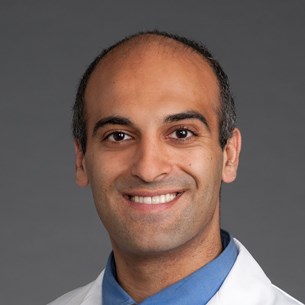Meeting
2020 ASCO Virtual Scientific Program

University of Texas Southwestern Medical Center, Dallas, TX
Bernard Tawfik , Shoshana Adler Jaffe , Jamina Oomen-Hajagos , Lisa Mohler , Inigo San Gil , Miria Adler Kano , Shawnia R Ryan , Janet Abernathy , Charles Wiggins , Andrew Sussman , Zoneddy R. Dayao
Background: The number of cancer survivors is rapidly climbing due to increased screening and improved treatment. Survivorship Care Plans (SCPS) summarize the patients’ treatment and is a communication tool between oncologists and primary care physicians (PCP)s. Creation and delivery of the SCPs has been labor intensive and costly for many healthcare systems and a previous paper based system at our institution was ineffective. The University of New Mexico Comprehensive Cancer Center (UNMCCC) treats a unique population of lower socioeconomic status (SES) (poverty rate 19.7%), rural (22.6%) and minority (Native Americans and Hispanics constitute 10.4% and 48% of the population respectively) patients in a large rural state. Methods: Beginning March 2019, UNMCCC initiated a process for creation and delivery of SCPs through the Electronic Medical Record (EMR). EMRs are not designed to delivery SCPs to patients and PCPs, so EMR functions were creatively repurposed. Upon identification of eligible patients, providers would place an electronic SCP order through the EMR. Designated staff then partially completes the SCPs based on medical record review while the EMR imports demographics, PCP, cancer and stage. Then the EMR flags SCPs ready for delivery and the provider edits, approves and prints the SCP for the patient at the next encounter. Once printed, the EMR alerts medical records to send the SCP to the PCP via mail or EMR routing. Results: 282 SCPs were ordered, 222 (78.7%) were created and 86 (38.7%) given to patients after definitive therapy of Breast (77.9%), Colorectal (7.0%), Gynecological (9.3%) and Prostate Cancer (5.8%). Of 72 SCPs eligible to be sent to PCPs, 48 (66.7%) were successfully mailed or sent via EMR, 13 (18.1%) had PCP discrepancies, 6 (8.3%) had no PCP and 5 (6.9%) had PCPs in systems which do not accept unsolicited records. Conclusions: The UNMCCC cares for low SES, rural and minority patients and was able to create and deliver SCPs to a significant number of patients and PCPs. Future process steps will involve creating tailored SCPs for other diagnoses, resolving PCP discrepancy issues and creating an EMR alert for PCPs when they receive an SCP. Additionally, assessment of both patient and PCP perceptions is ongoing.
Disclaimer
This material on this page is ©2024 American Society of Clinical Oncology, all rights reserved. Licensing available upon request. For more information, please contact licensing@asco.org
2020 ASCO Virtual Scientific Program
Publication Only
Publication Only: Symptoms and Survivorship
Symptom Science and Palliative Care
Psychosocial and Communication Research
J Clin Oncol 38: 2020 (suppl; abstr e24181)
10.1200/JCO.2020.38.15_suppl.e24181
e24181
Abstract Disclosures
2023 ASCO Annual Meeting
First Author: Min Jee Lee
2023 ASCO Quality Care Symposium
First Author: Sharon M. Castellino
2018 Cancer Survivorship Symposium
First Author: Megan Lanigan
2023 ASCO Annual Meeting
First Author: Izumi Okado